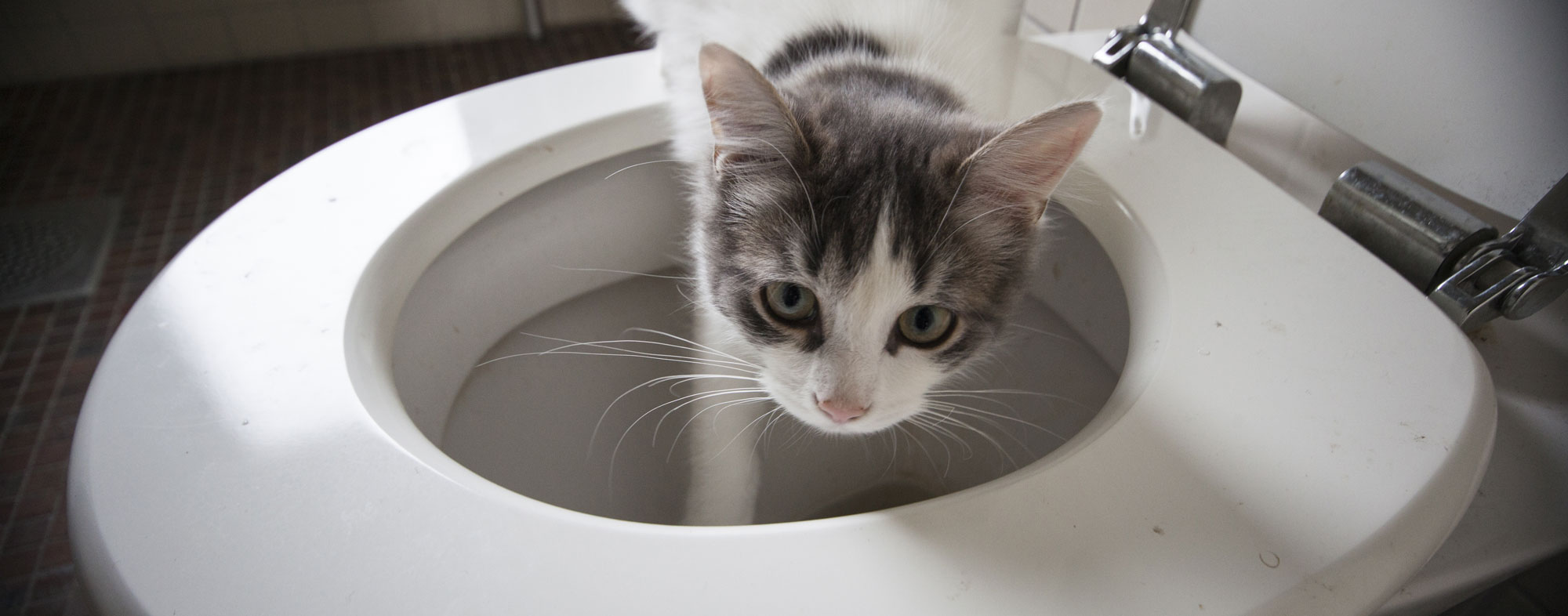Nearly everybody has got their own conception when it comes to Can You Flush Cat Poo or Litter Down the Toilet?.

Intro
As cat proprietors, it's vital to bear in mind how we get rid of our feline good friends' waste. While it might seem hassle-free to purge feline poop down the bathroom, this practice can have detrimental effects for both the setting and human wellness.
Alternatives to Flushing
Luckily, there are much safer and much more accountable ways to get rid of feline poop. Think about the complying with alternatives:
1. Scoop and Dispose in Trash
One of the most typical technique of taking care of feline poop is to scoop it into a biodegradable bag and toss it in the garbage. Make sure to make use of a committed clutter inside story and take care of the waste without delay.
2. Use Biodegradable Litter
Opt for eco-friendly feline clutter made from materials such as corn or wheat. These trashes are eco-friendly and can be safely taken care of in the garbage.
3. Bury in the Yard
If you have a lawn, think about burying feline waste in a designated area far from veggie yards and water sources. Make sure to dig deep sufficient to avoid contamination of groundwater.
4. Mount a Pet Waste Disposal System
Invest in a pet dog waste disposal system especially created for pet cat waste. These systems utilize enzymes to break down the waste, reducing smell and ecological impact.
Health and wellness Risks
Along with ecological issues, flushing feline waste can additionally present wellness risks to humans. Pet cat feces may contain Toxoplasma gondii, a bloodsucker that can trigger toxoplasmosis-- a possibly extreme illness, particularly for expecting ladies and individuals with damaged immune systems.
Ecological Impact
Purging pet cat poop introduces unsafe pathogens and parasites into the supply of water, posing a significant danger to aquatic ecosystems. These pollutants can adversely impact marine life and concession water quality.
Final thought
Accountable family pet possession prolongs past supplying food and sanctuary-- it likewise entails proper waste management. By avoiding purging feline poop down the bathroom and selecting alternate disposal techniques, we can reduce our environmental footprint and protect human health.
Why Can’t I Flush Cat Poop?
It Spreads a Parasite
Cats are frequently infected with a parasite called toxoplasma gondii. The parasite causes an infection called toxoplasmosis. It is usually harmless to cats. The parasite only uses cat poop as a host for its eggs. Otherwise, the cat’s immune system usually keeps the infection at low enough levels to maintain its own health. But it does not stop the develop of eggs. These eggs are tiny and surprisingly tough. They may survive for a year before they begin to grow. But that’s the problem.
Our wastewater system is not designed to deal with toxoplasmosis eggs. Instead, most eggs will flush from your toilet into sewers and wastewater management plants. After the sewage is treated for many other harmful things in it, it is typically released into local rivers, lakes, or oceans. Here, the toxoplasmosis eggs can find new hosts, including starfish, crabs, otters, and many other wildlife. For many, this is a significant risk to their health. Toxoplasmosis can also end up infecting water sources that are important for agriculture, which means our deer, pigs, and sheep can get infected too.
Is There Risk to Humans?
There can be a risk to human life from flushing cat poop down the toilet. If you do so, the parasites from your cat’s poop can end up in shellfish, game animals, or livestock. If this meat is then served raw or undercooked, the people who eat it can get sick.
In fact, according to the CDC, 40 million people in the United States are infected with toxoplasma gondii. They get it from exposure to infected seafood, or from some kind of cat poop contamination, like drinking from a stream that is contaminated or touching anything that has come into contact with cat poop. That includes just cleaning a cat litter box.
Most people who get infected with these parasites will not develop any symptoms. However, for pregnant women or for those with compromised immune systems, the parasite can cause severe health problems.
How to Handle Cat Poop
The best way to handle cat poop is actually to clean the box more often. The eggs that the parasite sheds will not become active until one to five days after the cat poops. That means that if you clean daily, you’re much less likely to come into direct contact with infectious eggs.
That said, always dispose of cat poop in the garbage and not down the toilet. Wash your hands before and after you clean the litter box, and bring the bag of poop right outside to your garbage bins.
https://trenchlesssolutionsusa.com/why-cant-i-flush-cat-poop/

I hope you enjoyed our topic about Don’t flush cat feces down the toilet. Thanks a ton for spending some time to browse our posting. Are you aware of somebody who is curious about the niche? Do not hesitate to share it. Thank you so much for going through it.
Article